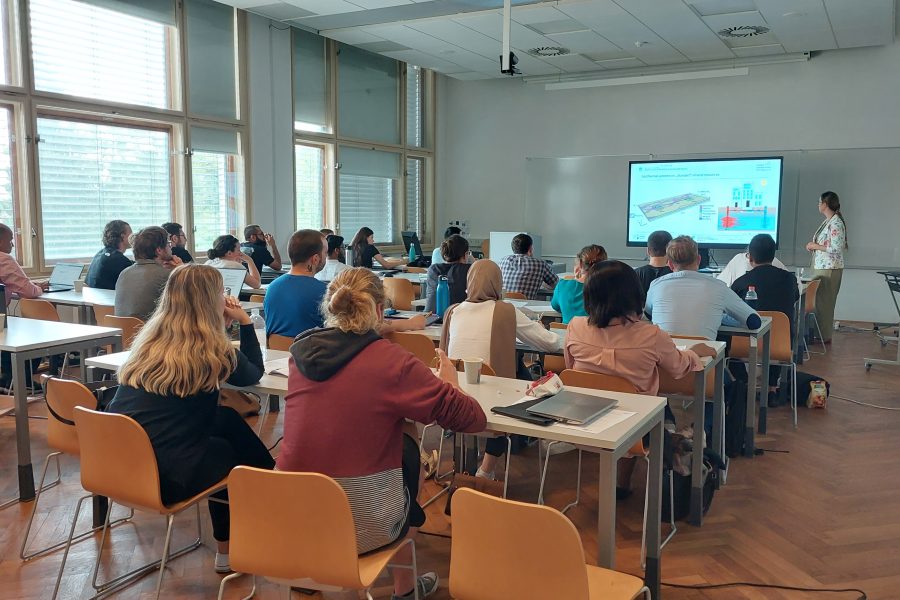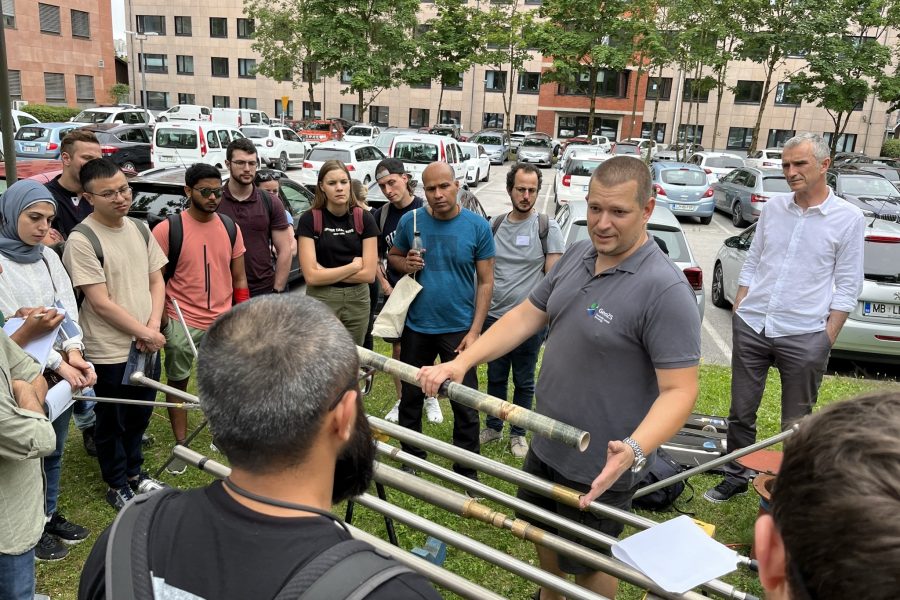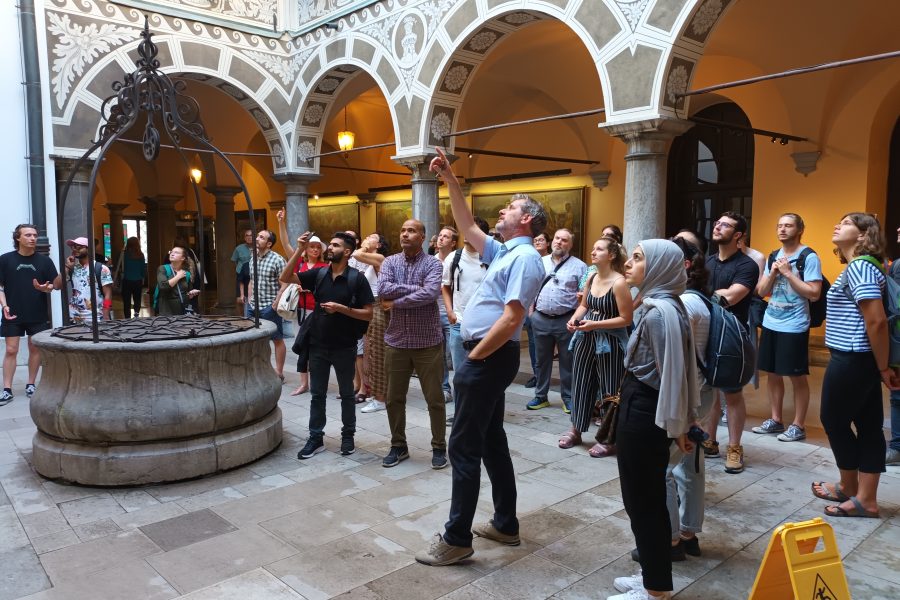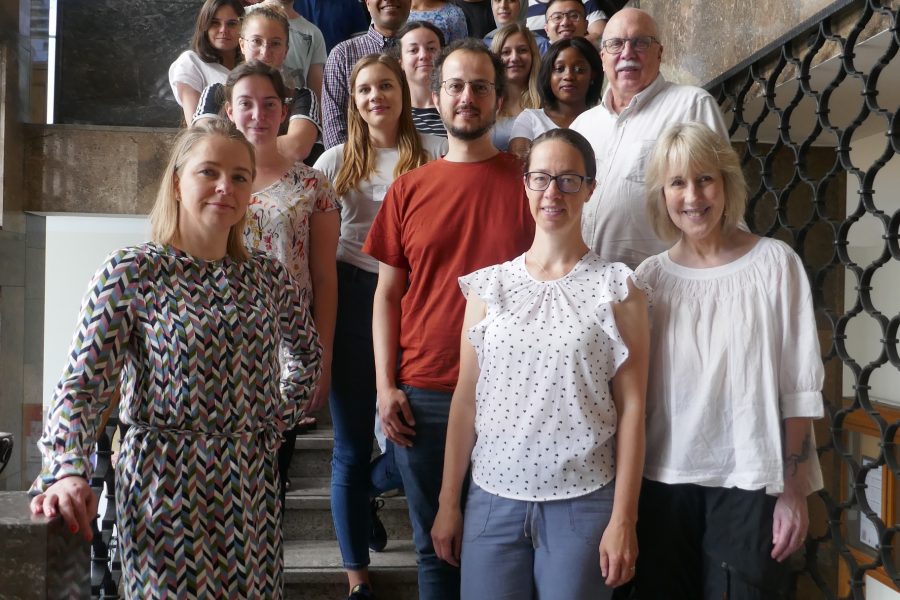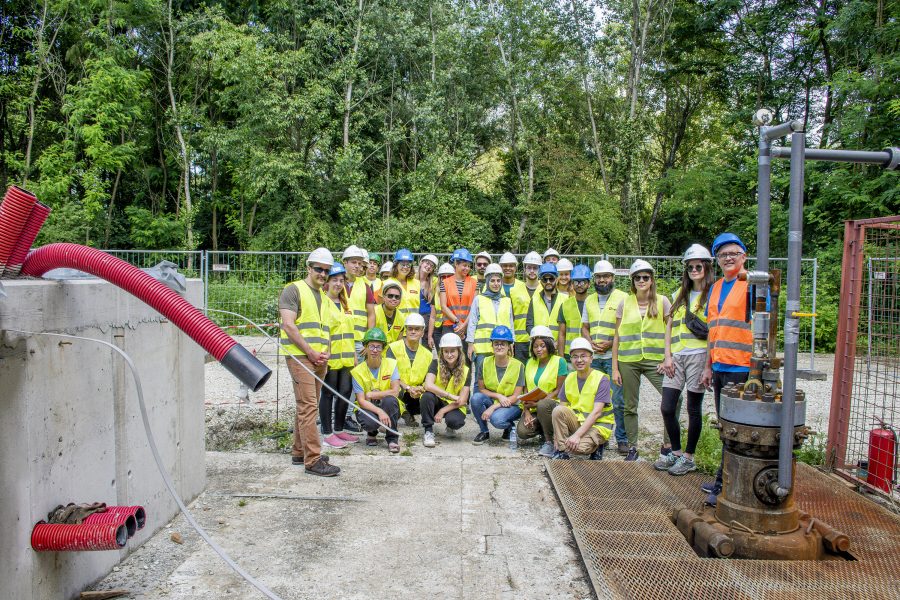The second International Summer School on thermogeology called “Advances in developing geothermal resources for heating, cooling and electricity production” was held in Ljubljana from July 3rd to 8th 2023. The summer school was organised with the Geological Survey of Slovenia (GeoZS) with support from the Iceland School of Energy – Reykjavik University and co-funding from the EEA project INFO-GEOTHERMAL and the project COST Geothermal DHC.
The summer school hosted 10 lecturers from Slovenia, Croatia, Canada, Iceland, the Netherlands, Norway, and the USA and 24 participants from 13 different countries in Africa, Europe, and North America with a 46 % women’s representation.
During the summer school, participants were introduced to the ways of developing new geothermal projects, best research practises, technologies for utilising and managing shallow geothermal energy and thermal water, and optimising plant operations to minimise environmental and human impacts and make them sustainable in the long term. In addition to the lectures at the Faculty of Natural Sciences and Engineering, we organised a full-day excursion to the northeast of Slovenia, a region with highest geothermal potential in Slovenia, and conducted field work in Ljubljana.
On Tuesday July 4th we visited the heat pump production KRONOTERM in Trnava; Lendava district heating system with a geothermal doublet managed by Petrol d.d.; Petrol Geo d.o.o. headquarters and the abandoned gas well Pg-8 where DEM, Petrol Geo d.o.o., University of Maribor and GeoZS are testing a pilot geothermal power plant as part of the Si-Geo-Electricity project; geothermal boreholes and cascade thermal water use system in Terme 3000 Moravske Toplice, and borehole heat exchanger drilling for the student Dormitory Vič heating conducted by Vrtine Palir d.o.o.
On Thursday July 6th we conducted field work at the Geological Survey of Slovenia where the participants were able to see the equipment for well logging, groundwater table measurements, and determining the physicochemical properties of groundwater, the geothermal and hydrogeological laboratory, and the equipment for conducting the thermal response test (TRT). We were also hosted by the Environment Agency where the participants learned about the national groundwater quantity and quality monitoring network.
